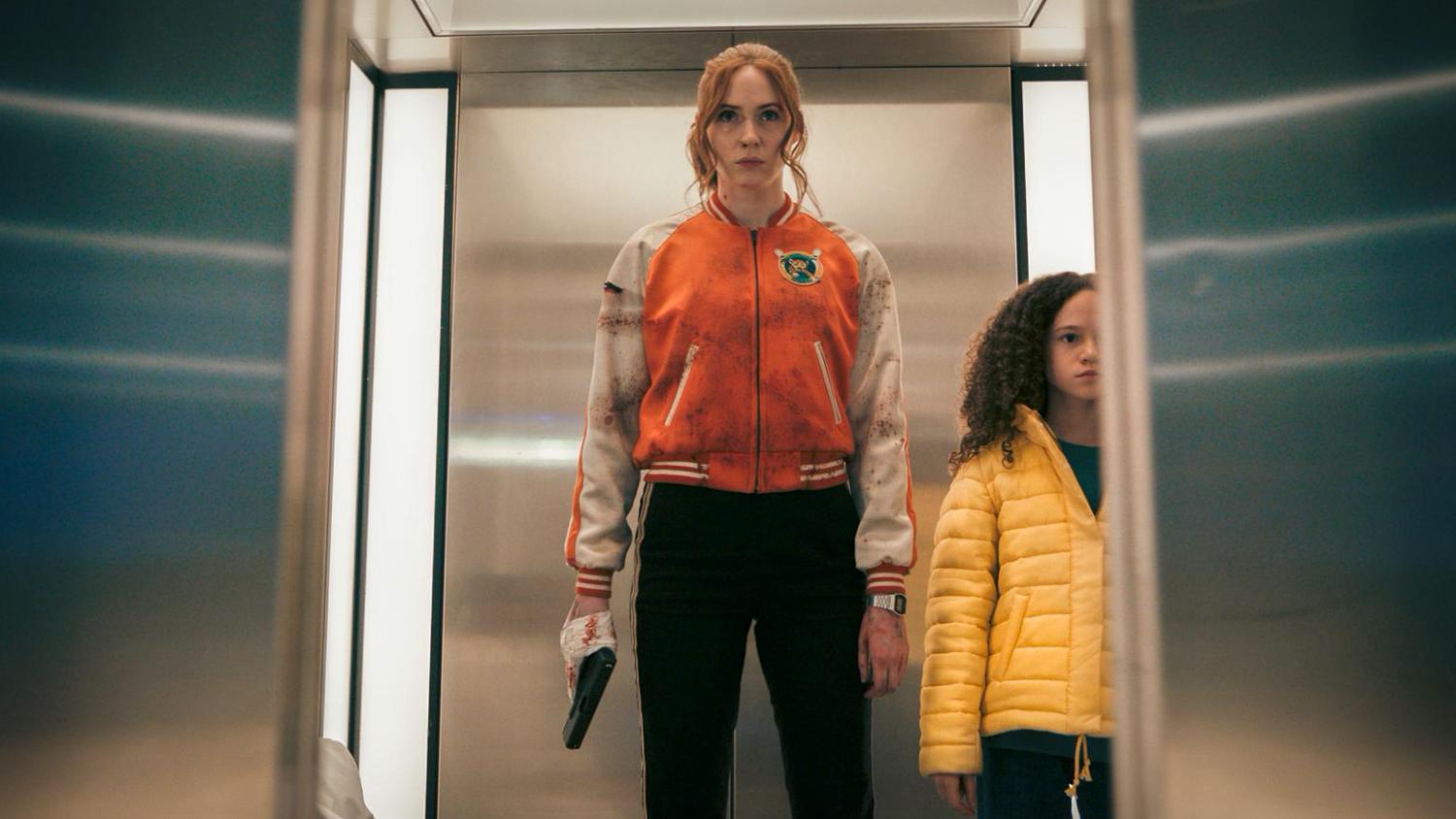Considering the pervasive aesthetic influence of John Wick on modern action cinema, it was only a matter of time before variations and riffs on the gun-fu formula would follow. Every genre passes through a natural cycle from experimental to classic to revisionist stages before finally ending in the dead zone of parody, an evolution as a byproduct of capitalist hunger and artistic reinvention.
Sporting a retro-neon design and showcasing overly grotesque, misogynist villains going up against stoically lethal female protagonists, Navot Papushado’s Gunpowder Milkshake is certainly aware of the tropes and gender roles it wants to upend. But for the film’s plodding first half, it doesn’t seem to be having any fun doing just that.
Inside a blood-soaked room lined with dead men, the first scene finds super assassin Sam (Karen Gillan) in the midst of dispatching a herd of heavies for a shadowy syndicate called The Firm. Standard noir voiceover works like a temporal needle drop just as she’s about to go full melee, kicking the story back in time to a pivotal moment of abandonment that would define this angry young woman’s entire professional path.
Shamelessly taking a page from Keanu Reeves’ actioner, it then puts Sam in a precarious position with her employers after she decides to save the life of an 8-year-old girl named Emily (Chloe Colman). The child is primed to be devoured by an underworld of murderers and sickos, a squad of “boneheads” and rapists ripped from the mind of Nicolas Winding Refn.
But salvation goes both ways, and there’s a fun fight sequence where Sam’s survival hinges on Emily helping tape weapons to her momentarily paralyzed hands. The proceeding brouhaha is messy, violent slapstick, a direct pastiche of John Wick’s perfectly timed kill shots and the wrecking-ball chaos of silent comedy and Jackie Chan.
Still, underneath the winking irony and black comedy is a sense of grave desperation felt by women trying to destroy the ever-changing rules of a game made by and for white men. Gunpowder Milkshake becomes far more exciting when it starts to tackle this theme more overtly, reuniting Sam with older women whose absence has allowed predatory power players like Nathan (Paul Giamatti) to weaponize her skillsets.
Arriving like the film’s holy trinity, Michelle Yeoh, Angela Bassett, and Carlo Gugino play librarians / arms dealers who, up to this point, have remained neutral gatekeepers in the criminal hierarchy. These wonderful actors enliven Gunpowder Milkshake—more than with badass reverie, a sense of literary yearning that connects back to Jane Austen and Virginia Woolf. During a deeply melancholic eulogy, one character says, “There’s little joy in life for me,” quoting the opening line of Charlotte Brontë’s poem, “On the Death of Anne Brontë.”
By celebrating the strength, sadness, and resiliency of sisterhood, Gunpowder Milkshake also highlights the folly of incompetent and arrogant men who are dispatched in variously unflattering ways. It’s both hilarious and insulting when the film’s growling villain (played with extra vocal bass by Ralph Ineson) begins his big final speech by telling the Sam and her recently returned mother Scarlet (Lena Headey), “I’ve always considered myself a feminist.”
Fittingly, his statement is followed by a slow-motion massacre cued to the Animals’ “It’s All Over Now Baby Blue,” a Bob Dylan cover that helps amplify the swift-spinning gunplay and agility of this strong female ensemble making mincemeat from gangster pigs. Gunpowder Milkshake isn’t always this thrillingly subversive, and at times is downright leaden. But when Papushado’s film finds the right tonal balance, meshing noir bleakness with pops of art deco color, there are fireworks to behold.
Gunpowder Milkshake hits Netflix on Wednesday, July 14.

